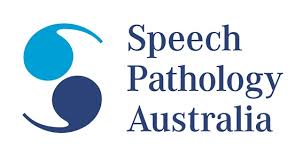Speech Pathologists indemnity and liability insurance
Your line of work is unique, so we’ve tailored an insurance policy that best suits the needs of your profession to better protect your reputation and livelihood.
Principle partner of


If you're forced to defend your professional reputation, you'll want the best support behind you.
Our policies include three types of insurance in one designed specifically for speech pathologists combining: professional indemnity insurance, public liability insurance, and product liability insurance.
Product liability
Insurance cover for liability for injury or property damage caused by goods sold or supplied by you to others. For example, this can include equipment or products provided to a patient that causes an allergic reaction or physical harm.
Extra benefits of this insurance policy
Nil basic excess on liability claims
Run-off cover which protects you when you’ve ceased practising permanently
Cover for legal costs and expenses associated with complaints to your registration body, disciplinary proceedings or a coronial inquiry
Provides a 21-day cooling-off period, allowing you to change your mind after purchasing coverage
Ongoing education through our RiskHQ, providing you with relevant and informative information on the risks that matter to you
Round-the-clock support with 24 / 7 claim support line availability
To find out more or to get your hands on our policy wording, simply call us on 1800 810 213.
FAQs
The law governs that any professional exercise the required skill to an appropriate level expected by that profession. A professional may be liable for financial loss, injury or damage arising from an act, error or omission of fault if the professional has not acted to the required level of skill deemed in that profession. Failure through this may result in the claimant (person who suffered the loss) be awarded for that loss, damage or injury.
Many professions require you to hold a professional indemnity insurance policy by law, such as Ahpra registered professions, but can be for other industries such as financial institutions also. Please check with your registration body or associations of your profession to know if it is required by law to have professional indemnity insurance. It is often also required by companies who take on contract workers that are not governed under the companies own insurance policy. It is acceptable for a company to ask you as the professional contractor to provide evidence of cover for professional indemnity before starting the contract period.
As stated above professional indemnity insurance covers you for breaches in relation to your professional duty. Liability insurance covers you for activity that results in personal injury or property damage as a result of your business activities that do not relate to your specific profession. An example may be someone who trips and is injured from spilled water within your office may be covered under liability, because it is your duty of care as business person to provide a safe environment. Whereas a person who suffers a loss or injury because of your professional treatment in relation to your job has caused it would usually be consider as an indemnity breach.
Generally business insurance is to cover the physical assets of your business for material damage loss and options for theft cover. It can also include cover for financial loss due to business interruption. Usually basic insurance does not cover breach of duty or flood cover, but if you speak to an insurance specialist it can often be added to your policy for a nominal fee.
Depending on the policy you are taking out, covers will often vary. At Guild insurance we specialise in making a policy to suit your business so that you are not over paying for covers you wouldn't normally need. The best thing to do is call 1800 810 213 to speak to an insurance specialist, they can find out what activities and structure your business is in to then provide you with adequate cover for you.
A certificate of currency (or COC for short) is a written document that confirms that your insurance policy is current and valid at a specific date and time. At Guild we provide easy access to your COC at any time within a few clicks of our online portal PolicyHub. If you are a new customer we can provide you with one post purchase.
Our partnership with Speech Pathology Australia
Guild is the principal partner of Speech Pathology Australia.
We work closely with your association to tailor an insurance policy suited to your unique needs.
Speech Pathology Australia is the national peak body for speech pathology, dedicated to supporting communication health and helping individuals connect and thrive.
Not just an insurance policy
Risk articles with RiskHQ

You can visit RiskHQ at any time to read up about the unique risks you face as a speech pathologist. We cover a variety of risk management topics, from managing complaints, to social media risks, maintaining your speech pathology centre, and much more.
Providing speech therapy to a child when the parent or guardian is absent
Have you ever considered a situation where you’re providing therapy to a child and the parent or guardian intends to leave the child alone with you? This may be because they wish to collect another child from school or sport, or they may wish to pick up something from the supermarket. Regardless of why it occurs, this is unfortunately not a completely unfamiliar situation for speech pathologists to experience.
At first thought this may not seem like a particularly concerning situation. However, to understand the potential risks if this were to occur, it’s worth considering the following circumstances.
What if…
- The session finishes before the parent has returned and you’re ready to start your next session?
- You were in the family’s home as opposed to a clinic and the parent wants to leave to go to the shops briefly? And consider that there may be other children in the house.
- The child becomes upset with their parent not being there?
- The child has a medical emergency?
- The child is a new client who you aren’t overly familiar with?
Do you think this situation is acceptable?
Speech Pathology Australia’s Ethics Board have advised speech pathologists that a situation where a parent leaves during therapy sessions should only occur under exceptional circumstances, it should not become the norm or commonplace. However, this doesn’t mean speech pathologists have to allow this to occur even when there may be exceptional circumstances; they are permitted to decline to provide therapy under this situation if they don’t feel it’s appropriate or they aren’t comfortable.
It’s recommended that speech pathologists consider the possible scenarios mentioned earlier, as well as other possible similar scenarios, and decide on a standard for what they would and wouldn’t feel is professionally appropriate. And this may be different for different practitioners based on the nature of their work and clients, as well as personal comfort levels.
A speech pathologist may feel ok when a child is left in their care without a parent when at the clinic, but not when at the client’s house. A speech pathologist may also only accept parents leaving once the child is over a certain age. Or they may just want to consider each situation individually based on each child. What’s most important is that the scenarios have been considered before they arise.
Setting expectations
It’s important to set expectations with families at the beginning of the therapeutic relationship. This should be in relation to parents being present during therapy but also other elements of the therapeutic relationship. Imagine that a therapy a session with a child is about to start and the parent quickly tells the speech pathologist, as they’re walking out the door, that they’re heading out briefly. If this scenario has never been discussed, this could be quite a challenging moment and the speech pathologist may not know how to respond until the parent has left.
Policies assist greatly with setting expectations. The process of developing policies provides the speech pathologist with reason to reflect on and consider what they think is professionally acceptable and required and how they want their clinic to operate. Policies developed for a clinic provide a standard which everyone is to work within, creating consistency between colleagues. These policies should be discussed with clients and their families at the start of the therapeutic relationship during the process of setting expectations. The policies will make it easier for the speech pathologist to have an open and honest conversation, making it clear how they’ll work together to achieve the best therapeutic outcomes.
Setting expectations and agreeing on actions and behaviours means the parents know what is expected of them and it also empowers the speech pathologist and gives them the authority needed to handle challenging situations.
Implications for the family
When explaining to families what you expect from them in terms of being present during therapy sessions, be sure they understand how this will affect them and their child, not just you.
It’s beneficial for parents to be aware of their child’s diagnosis as well as progress over the course of their therapy. Parents may also be expected to do some work with their child outside of therapy sessions. Therefore, there is possibly going to be implications for the child and their progress if a parent isn’t present.
Discussion before they leave
If a parent does leave the therapy session, the speech pathologist should have a process in place for discussing necessary information before they leave. This information should include:
- Where the parent is going (this may useful if for some unforeseen reason the parent doesn’t return)
- When they expect to return; the parent should agree to return by a nominated and agreed to time
- Contact names and phone numbers during this time (there may be people other than just that parent to consider, such as a neighbour)
- What will occur if they parent hasn’t returned by the agreed time, such as the child being left unsupervised in the reception area.
Record keeping
Speech pathologists would be aware of their professional obligation to maintain detailed and up to date clinical records. However, records should contain more than clinical outcomes, they should tell the story of the therapy provided and progress made. It is advisable that speech pathologists make a note in the record which, if any, parent was present during the session and what was discussed with the parent regarding the therapy. This will assist with the ongoing continuity of care as the speech pathologist will have on record what the parents have been told and what information still needs to be provided to them.
- Speech Pathologists
- Professional
Insurance for Speech Pathology Centres
If you own a speech pathology centre or training facility and need insurance for your building, contents and more. Visit our information on business insurance for speech pathology businesses.

*Coverage up to $20 million requires your selection of cover up to this limit during the quote and purchase process.





Write a review Average rating: